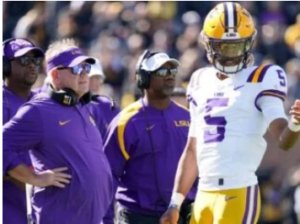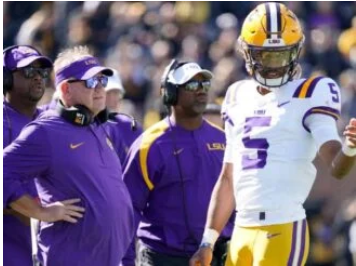Laughter and cheers filled the air as the LSU Tigers celebrated their latest victory on the field. But behind the scenes, a different story was unfolding. The team’s statement on racism, meant to be a step towards unity and progress, had ignited a firestorm of backlash.

The statement, released on social media, condemned racism and discrimination in all forms, emphasizing the team’s commitment to inclusivity and respect. However, many fans and alumni saw it as a hollow gesture, a mere publicity stunt aimed at appeasing critics rather than sparking real change.
Critics argued that the statement lacked concrete actions and tangible solutions, failing to address the systemic issues plaguing the team and the university. They pointed to the lack of diversity among coaches and staff, the absence of meaningful initiatives to support minority students, and the failure to acknowledge and learn from past mistakes.
As the backlash grew, current and former players began to speak out, sharing their own experiences with racism and discrimination within the program. They recounted stories of being marginalized, stereotyped, and excluded, their voices and concerns ignored or dismissed.
The team’s leadership was caught off guard by the ferocity of the response, scrambling to contain the damage and reassure fans that they were committed to doing better. But for many, the damage had already been done.
The controversy highlighted the deep-seated issues that had long plagued the LSU Tigers, issues that went far beyond a simple statement or gesture. It exposed a culture of complacency and indifference, one that had allowed racism and discrimination to fester and grow.
In the end, the LSU Tigers were forced to confront the harsh reality that their words were not enough, that true change would require effort, dedication, and a willingness to listen and learn. The backlash had sparked a long-overdue conversation, one that would shape the future of the team and the university for years to come.
